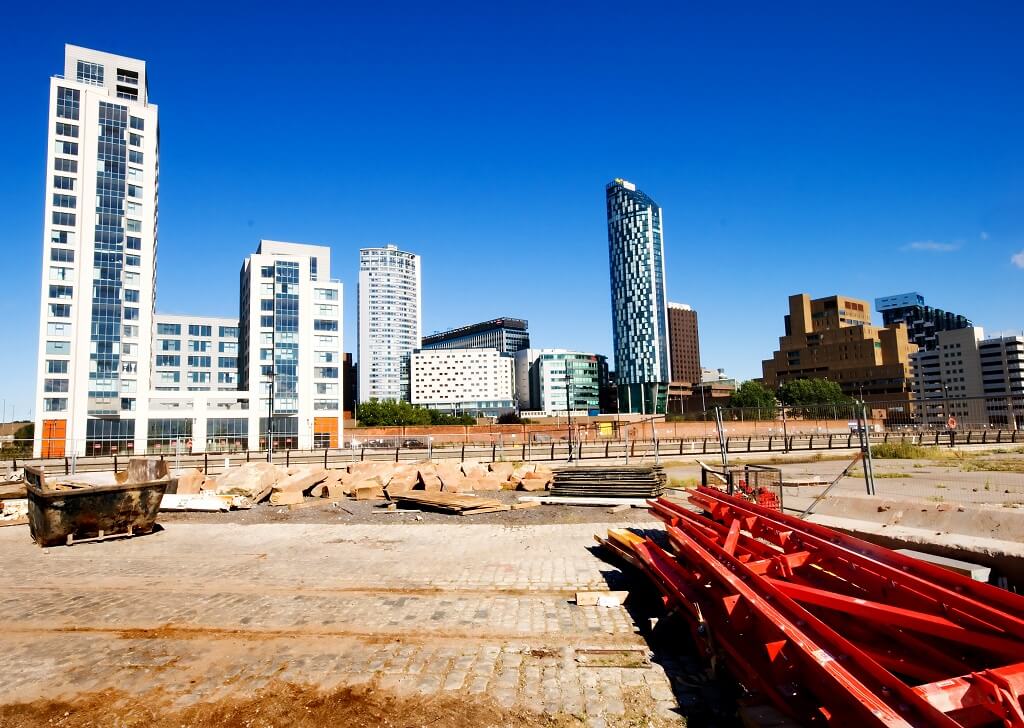A string of major construction projects — from a massive hockey arena and street car line down Woodward to the resurrection of the Wayne County jail project — will reshape downtown Detroit in 2017.
It’s a flurry of activity and investment that seemed wildly improbable less than a decade ago. But the construction detours and closed sidewalks are a welcome sign of a new era for many who live and work near downtown.
“I’m excited about all of (the developments) as long as they’re bringing more jobs and better opportunities to the city,” said Denzel Walls, 26, of Detroit. “That’s what we need.”
Those who work and play downtown should be able to get around more easily once the QLine street car project begins initial operations in spring. Work crews finished curb-to-curb reconstruction of 2.5 miles of Woodward between Sibley and Chandler in December.
Six streetcars, owned and operated by the M-1 Rail nonprofit, will run along a 6.6-mile loop between Campus Martius downtown and New Center. A decade and $140 million in the making, the line will deliver passengers along the route at speeds of up to 35 mph.
“I’ll definitely use that to get around,” Walls said. “And to get a view of the city.”
More and more people are likely to do the same, according to recent statistics that show office vacancies in the downtown area are at their lowest point in a decade. The addition of the rail line could open demand in the New Center area. The lines also could increase demand for office space in neighborhoods near downtown such as Corktown and Eastern Market.
East of Woodward, construction is underway in Brush Park on what is considered Detroit’s largest residential development in decades. Construction started in early December on a massive, $70 million housing project, spearheaded by Quicken Loans founder Dan Gilbert, that will include 410 town homes, duplexes, carriage homes and apartments.
The Motor City’s upscale housing offerings will get a boost from work underway on Orleans Landing, a 7-plus acre housing and retail complex just a block from the Detroit River.
While office and residential development are getting a boost, Detroit continues to carve its niche as a magnet for artists, designers and young professionals. And in 2017, the symbol of that identity may come to be the Quonset hut.
Popping up in the area between Core City and Woodbrdge is a village of the corrugated steel structures. New York investor Philip Kafka, who began his own attempts at reshaping Detroit five years ago, hopes a collection of nine Quonset huts near Grand River and Warren Avenue will eventually become a start-up location for local artists and entrepreneurs.
Talk of development in Detroit in 2017, however, begins and ends with sports. The loudest buzz centers on the new home for the Detroit Red Wings and the Detroit Pistons.
Little Caesars Arena will be the focal point of an entertainment district that studies show could have a $596 million impact on southeast Michigan.
In October, Christopher Ilitch, president and CEO of Ilitch Holdings Inc., said “we’ve got about 52 projects right now on the board” for the area around the arena.
Anchoring the neighborhood is the new $732.6 million arena that features 20,000 seats and a glass-roofed concourse.
Soccer also could play a crucial role in the fate of another major site downtown — the abandoned Wayne County Jail project. The property, at the north end of Greektown, has been in limbo for years after cost estimates soared for a new detention facility.
Gilbert, along with Pistons owner Tom Gores, have floated the idea of bringing a Major League Soccer franchise to Detroit. They hope to construct a stadium complex at the jail site.
Before that could become a reality, there is a series of hurdles in the way — not the least of which is the 10 other cites vying for an Major League Soccer franchise.
And Wayne County officials have said they hope to revitalize the project and finish the jail.
Construction on the $220 million project began in 2011, under then-County Executive Robert Ficano. The proposed 2,000-bed project near the Frank Murphy Hall of Justice was halted in June 2013 amid $100 million in overruns and charges of corruption.
About $151 million was spent in construction, acquisition and design of the jail, with much of the work done underground, according to officials.
The half-finished jail has sat unused at a cost of $1.3 million a month, county officials estimate. The site is bounded by Gratiot, the Chrysler Service Drive, Macomb and Beaubien.


